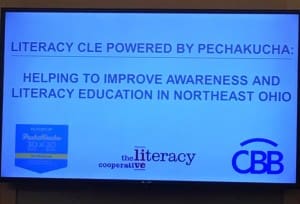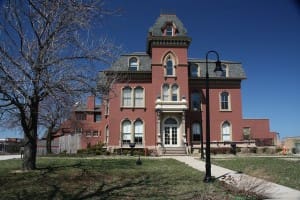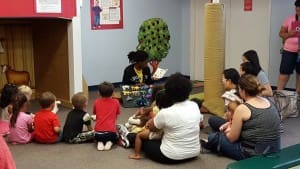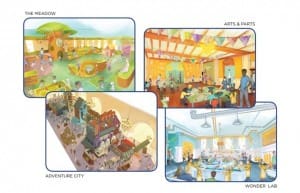Elizabeth Poulos, Our Summer Intern, Reflects on Her Time with The Literacy Cooperative
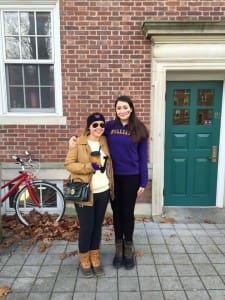 Elizabeth Poulos interned with The Literacy Cooperative from May to July of this year (2016) as part of the Williams Alumni Internship Grant. The Williams Alumni Internship Grant is designed to allow students to engage in constructive and innovative projects which address significant needs, link knowledge and structural change within society. Ms. Poulos will be a sophomore at Williams College in Williamstown, Massachusetts.
Elizabeth Poulos interned with The Literacy Cooperative from May to July of this year (2016) as part of the Williams Alumni Internship Grant. The Williams Alumni Internship Grant is designed to allow students to engage in constructive and innovative projects which address significant needs, link knowledge and structural change within society. Ms. Poulos will be a sophomore at Williams College in Williamstown, Massachusetts.
As part of her intern experience she worked on projects related to our early literacy initiatives. In the following piece she reflects on what she learned about the literacy crisis in our city as well as the important role literacy programs, like our program STEP, play in connecting the city to tools and resources needed to fight this crisis.
“Some Cleveland neighborhoods like Hough, Fairfax, Central, and Kinsman, have functional illiteracy rates as high as 95%.” I first came in contact with this statistic about a month into my internship at The Literacy Cooperative, when I was compiling literacy facts for their upcoming Corporate Spelling Bee. When I first read this I was surprised, not only by the gravity of the situation, but also its extent in neighborhoods with which I was familiar. How does one approach a problem when it was so widespread?
The more statistics I read, the more dwarfed my efforts as an intern felt in the face of the giant odds when fighting for literacy in Cleveland. Yet, upon further reflection, I realized that as someone working at a nonprofit, as someone fighting for a cause, you can’t let the statistics get the best of you. Yes, these statistics are incredibly helpful, and they can mark meaningful reform and progress being made in literacy policy in Northeast Ohio; but the moment when I felt most connected to the issue of literacy, and progress being made in the city, was when I read the survey responses of kids who had taken part in the STEP reading intervention program with the help of support from their school and The Literacy Cooperative. I had been learning a lot about the STEP program by reading about it on our website, rethinking the pamphlet we use about STEP, cutting and organizing different STEP packets, but nothing compared to the insight I got about STEP, and literacy efforts here in Cleveland, than the responses of those young scholars.
STEP, or Supporting Tutors Engaging Pupils, is a supplementary reading intervention tutoring program that TLC shepherded into the system’s of several Northeast Ohio schools, like George Washington Carver. STEP helps students by giving them a chance to practice reading, and to build their literacy skills with tutors who have been provided with the structure and tools to help their scholar’s soar. Although not all the scholar responses were positive (often STEP time infringes on the oh-so-popular recess time), what I sensed in every survey was the receptiveness, and eagerness of each student to try: to try and read, to try to learn, to try and build the literacy skills they will use for life. For many of these students, STEP helped meet this eagerness with quality tools and programming that provided clear positive results. What became clear to me was not that we need to work harder as a movement to get the scholars excited and eager to learn, but that the real challenge lies in providing the same level of energy in the resources they are given to improve their literacy, to give them the best possible tools to make those improvements. And that’s what The Literacy Cooperative does, and I think that’s what I found to be my true goal in my time there as an intern; to help the organization, and to help connect literacy efforts around the city with the tools and resources they need to make a real difference.

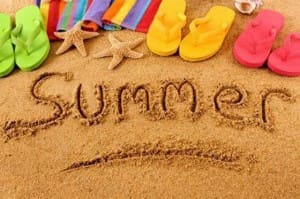 The summer is winding down. How have you spent these warm weeks? On a family vacation? Taking walks in the park, playing at the beach? Going to festivals or amusement parks? How about reading together or doing a handful of math problems with your child once a day?
The summer is winding down. How have you spent these warm weeks? On a family vacation? Taking walks in the park, playing at the beach? Going to festivals or amusement parks? How about reading together or doing a handful of math problems with your child once a day? The summer is a great time to get children outside and active. You can create reading games, such as a vocabulary scavenger hunt. Label items throughout your yard or hide certain words in the trees and bushes. Have you child run about finding all the words and then use them to create sentences and stories. They are active and learning at the same time!
The summer is a great time to get children outside and active. You can create reading games, such as a vocabulary scavenger hunt. Label items throughout your yard or hide certain words in the trees and bushes. Have you child run about finding all the words and then use them to create sentences and stories. They are active and learning at the same time!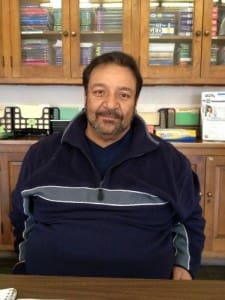 Juan is a 58-year-old veteran who grew up in a tough neighborhood in Chicago. To escape the poverty and violence around him, he joined the army at the age of seventeen and served in Panama where he was trained as a Combat Medic. After an honorable discharge, Juan returned to Chicago and embarked on a music career. He always had a talent for music, and he played as a percussionist with bands in the Latin night clubs. Although his music career was very successful, Juan became too involved with the darker aspects of night life and developed an addiction to drugs and alcohol.
Juan is a 58-year-old veteran who grew up in a tough neighborhood in Chicago. To escape the poverty and violence around him, he joined the army at the age of seventeen and served in Panama where he was trained as a Combat Medic. After an honorable discharge, Juan returned to Chicago and embarked on a music career. He always had a talent for music, and he played as a percussionist with bands in the Latin night clubs. Although his music career was very successful, Juan became too involved with the darker aspects of night life and developed an addiction to drugs and alcohol.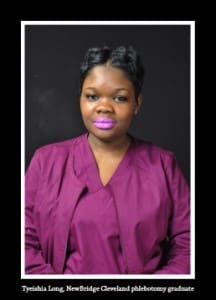 Tyeishia, 24 years old with a two year old daughter, had lived in her car or slept on a mattress at a different home every night for more than a year because she had no money for a place of her own. She felt hopeless, stuck earning $8 an hour at a local photo shop and barely paying her bills. Unfortunately, Tyeishia lacked the skills or experience to change the pattern of living paycheck to paycheck.
Tyeishia, 24 years old with a two year old daughter, had lived in her car or slept on a mattress at a different home every night for more than a year because she had no money for a place of her own. She felt hopeless, stuck earning $8 an hour at a local photo shop and barely paying her bills. Unfortunately, Tyeishia lacked the skills or experience to change the pattern of living paycheck to paycheck.